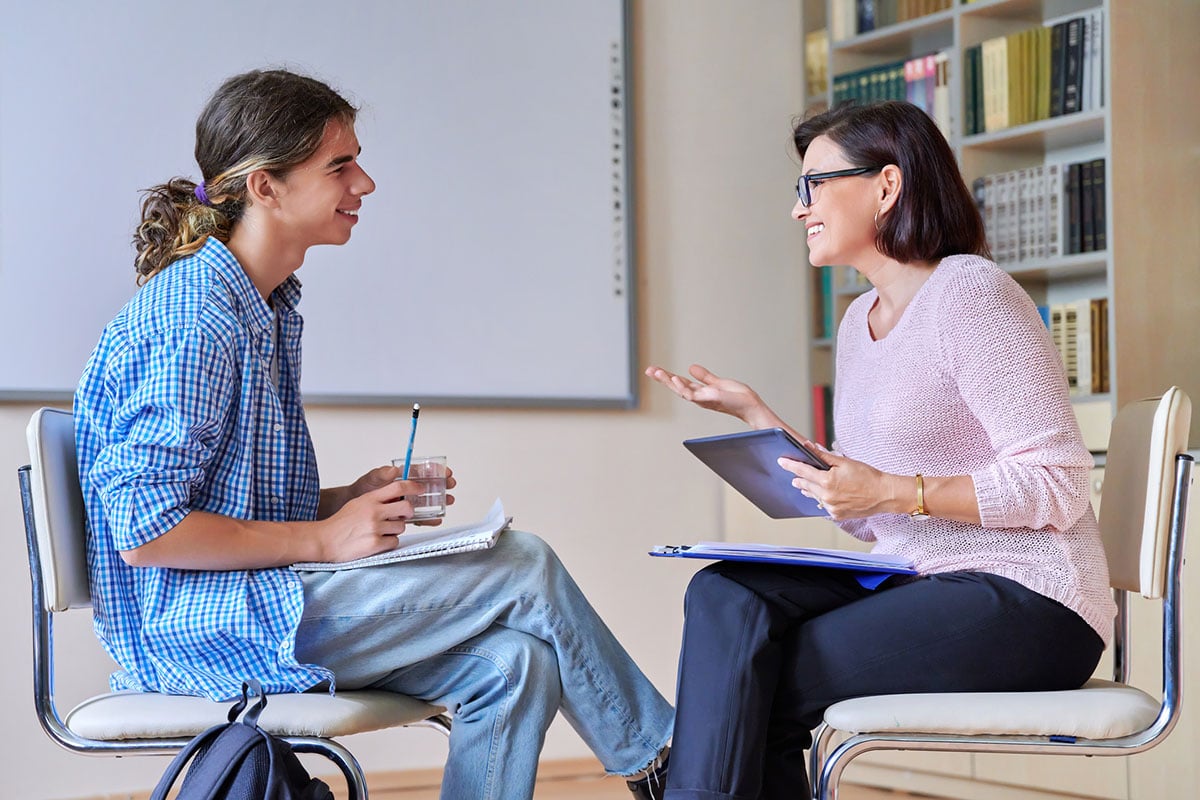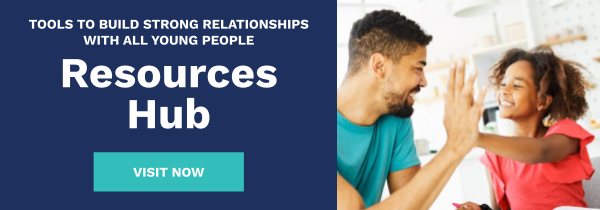Subscribe for Updates

We’ve all noticed that young people seem to escape into their own world. And it’s not just the screens and headphones.
Let’s face it, these are challenging times for young people—and for all of us, to be fair. It’s challenging to find common ground and share a positive future for ourselves or for our children. Add to this trying to recover from an unpredictable pandemic, and you have a perfect storm for stuck and isolated youth who are struggling to return to some sense of normalcy.
That’s why it’s so important to intentionally build relationships with the young people in our lives—to start conversations, repeatedly and as often as it takes, to create connections, build trust, and help them develop a positive view of themselves.
Building Relationships with Young People
Children, and especially youth, can seem hard to reach. But research shows that young people who are surrounded by a web of developmental relationships are less likely to engage in risky behaviors and more likely to succeed in school and thrive in life. But how do we do that?
Search Institute’s developmental relationships framework is a research-based approach that helps young people:
- Discover who they are
- Develop abilities to shape their own lives
- Learn how to engage with and contribute to the world around them
Authentic engagement with young people starts with openness. Share about yourself, including your challenges, and talk openly and honestly. Paying attention, putting away your cell phone, remembering small and not-so-small details of a young person’s world are important ways to express care and intentionally build relationships. This approach yields benefits for adults, too, but the benefits for the young person are exponential.
Challenges Left by the Pandemic
“When the schools closed, it felt like my kids went to their rooms and their laptops became their worlds.”
Many parents and caregivers struggled to help students with the technology, content, and structure of a remote‑learning school day. But education has been only part of the challenge. COVID‑19 put an extraordinary amount of stress on many families, including increased financial insecurity, caregiving burden, confinement, and illness or death of loved ones that disrupted family systems. Some of the biggest challenges were not knowing how to use all the extra together time. We had to learn how to communicate better — how to not just find whatever private corner there may be to retreat to and find some alone time. Young people in particular suffered. And now we need to address those challenges through meaningful conversations, particularly with peers and adult mentors.
The following are some prompts that can be used as conversation starters in classrooms, programs, or even informal family settings.
12 Conversation Starters to Help You Engage Young People
The following conversation starters encourage young people to think about who they are becoming and how they can be intentional in working toward a positive future. They can be used with youth in your school, organization, home, or community, and in one-on-one or group settings. Adults and young people can all answer these questions. Use the opportunity to share a bit about yourself.
- Imagine yourself in 10 years. If everything goes well, what would you like to be doing? Who would you be with?
- If you could do one thing better, what would it be? How would it make your life better if you could do that?
- Who in your family has had dreams or aspirations that changed the course of their lives? How might your life be different if they hadn’t reached for their goals?
- Have you ever encountered a key decision point—a fork in the road—that set you in a new direction in some area of life? What happened? How did you make that decision?
- What have been major roadblocks that made it hard for you to become the best you could be? How have you coped with or overcome these obstacles?
- What is something you hope to be good at in 5 years? What is one thing you do now to help work toward being good at this?
- If you could study just one thing for three months, what would you study? Why?
- If you could do one thing to make the world a better place, what would you want to do? What steps could you take to make that kind of difference?
- Suppose someone asks you this question ten years from now: What have you most enjoyed doing over the past ten years? What do you hope you could tell them? What can you do now that will make it more possible that you’ll be able to give that answer?
- Imagine that you’re hanging out with some friends 10 years from now. Who do you hope will be there? Where do you hope you will be? What would you be talking about?
- What really motivates you to work toward your dreams? What keeps you going?
- What obstacles or challenges do you see between you and your hopes for the future? What can you do now to make it more likely that you’ll overcome those challenges?
Recovering from the Pandemic with Better Relationships
The pandemic was hard on everyone, and many teachers and program leaders are also struggling with burnout from the extra work and challenges of reconnecting with disconnected students. Assessment tools like a Relationships Check can assist with self-reflection and insights regarding the relationships you’re building with young people and can help propel us all to a more connected future.
Search Institute
3001 Broadway Street NE #310
Minneapolis, MN 55413
© 2021 Search Institute |
Search Institute is a 501(c)(3) nonprofit charitable corporation. All contributions are tax deductible.
